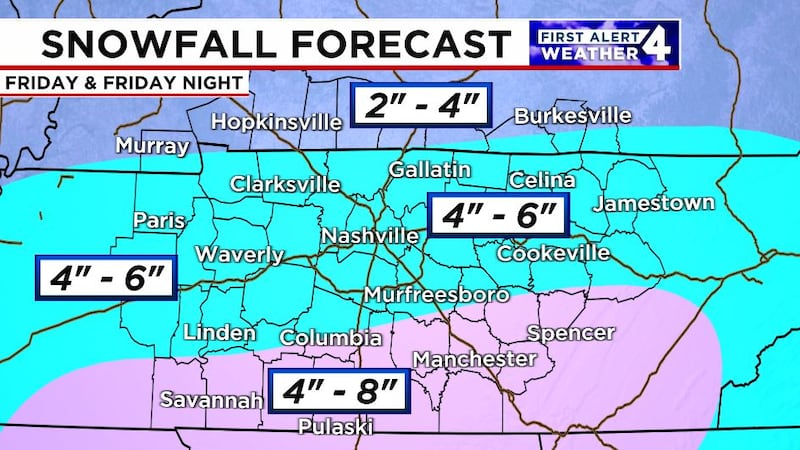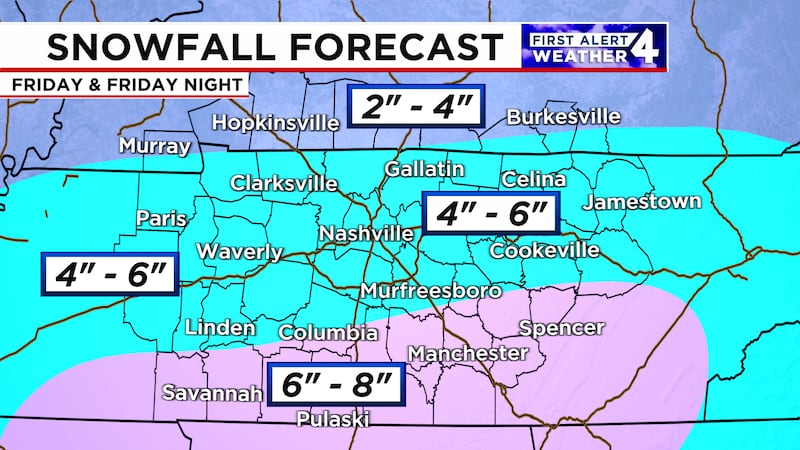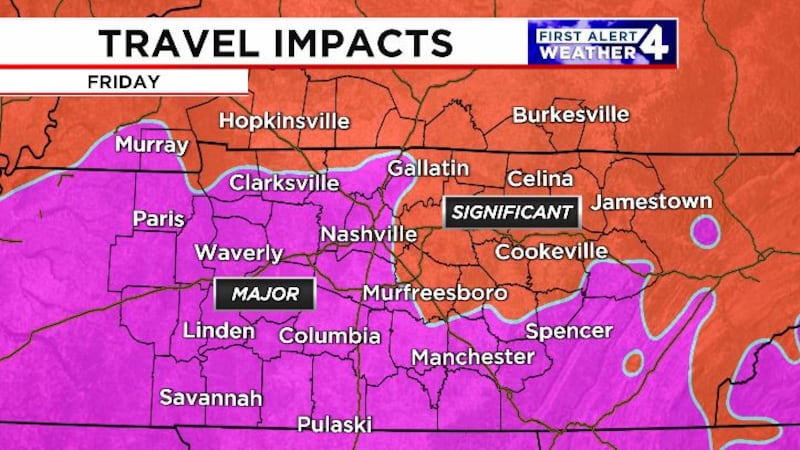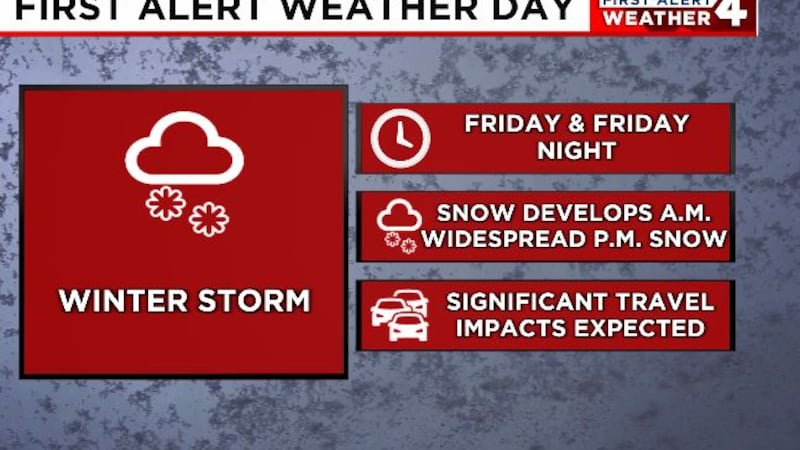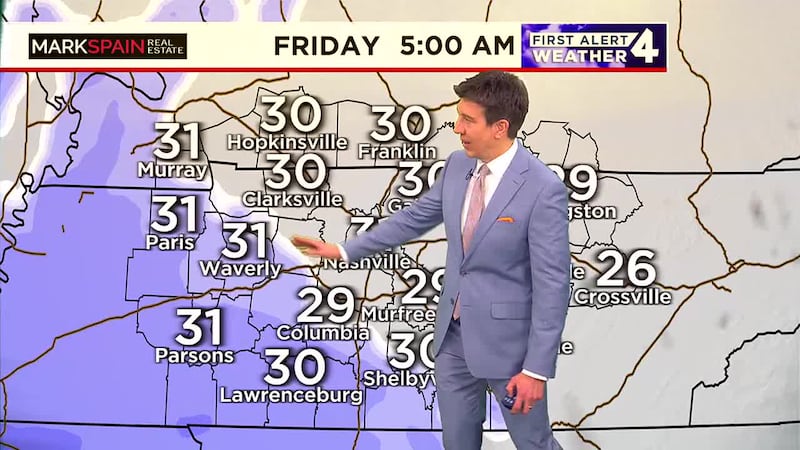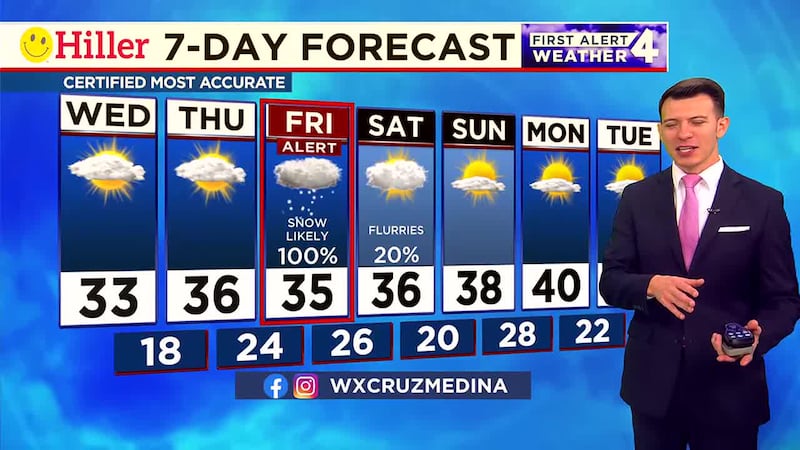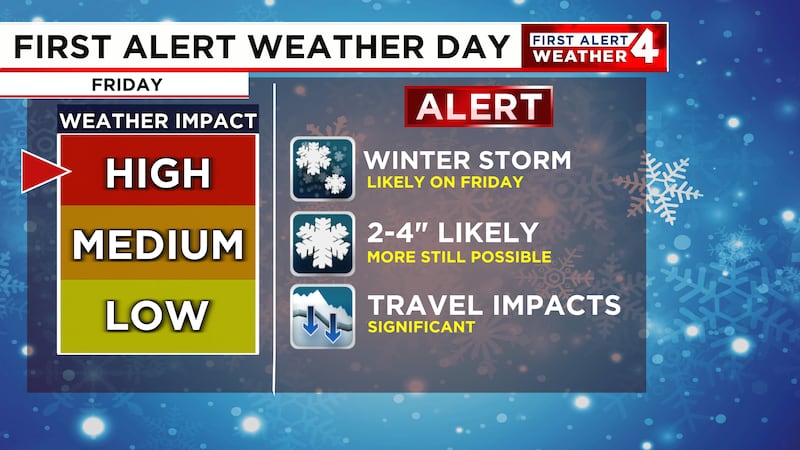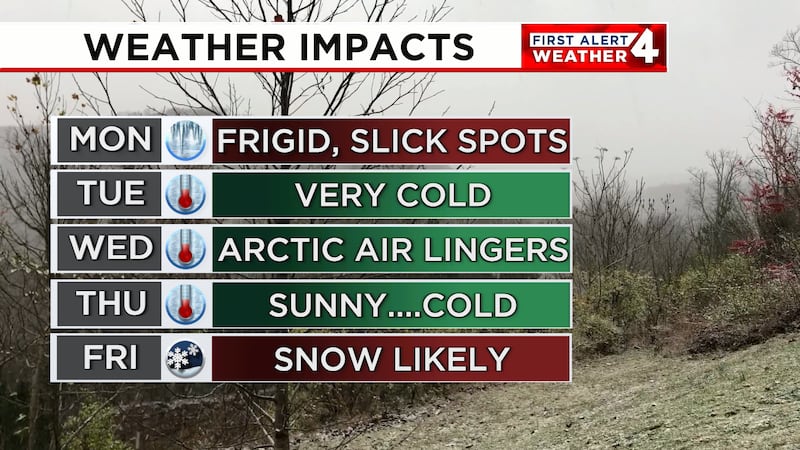The danger of wet leaves on roads
Wet leaves present a special kind of danger that is often overlooked.
NASHVILLE, Tenn. (WSMV) - Wet or icy roads can be hazardous for travel, but eaves on roadways come with their own type of danger.
The days are getting shorter, temperatures are cooling on average, and leaves are changing colors. Leaves are also falling which presents a hazard you’ll have to be aware of through the rest of Fall and Winter.
The average number of leaves on a mature tree (oak, for example) is around 200,000. Just 360 dry leaves weigh about 1 pound. 1 tree, on average, has about 550 pounds of leaves. If the leaves are we, then multiply that number by 4.
Wet leaves are more than just heavy, they are slick. They are so slick that driving on wet leaves can be compared to driving on ice. Driving on wet leaves can significantly increase your stopping distance.
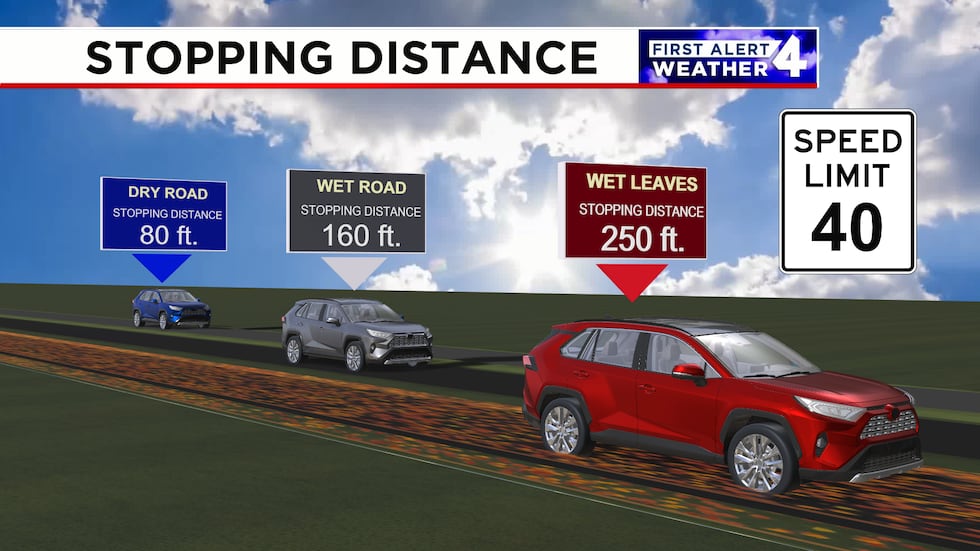
Your stopping distance on wet leaves can increase by as much as 3 times the amount it would take on a dry road. This is even worse than wet roads alone, which often are the cause of crashes.
During Fall, leaves on roadways are a danger that is often overlooked. It is important to pay close attention to road conditions to avoid crashes.
Copyright 2024 WSMV. All rights reserved.


